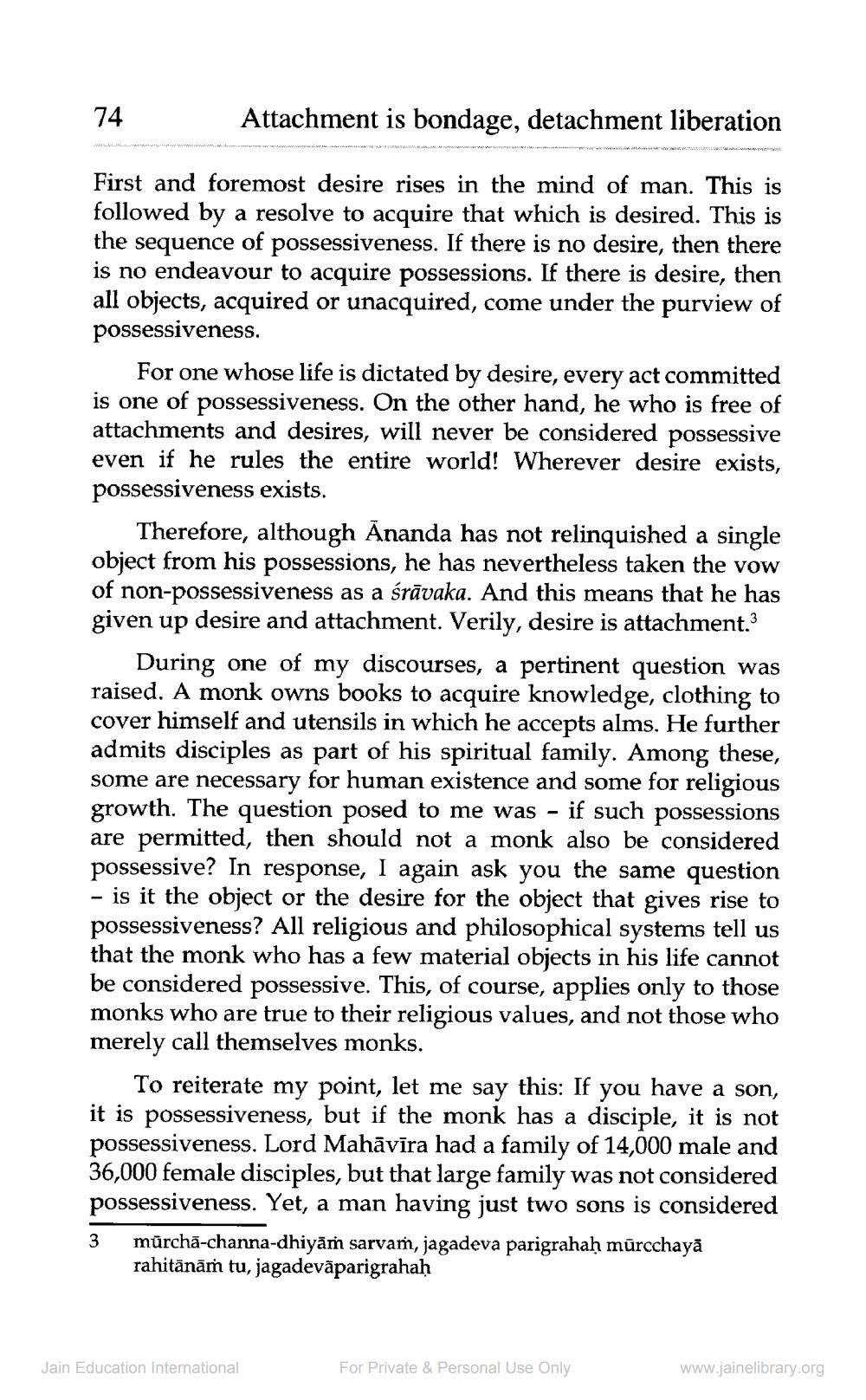________________
Attachment is bondage, detachment liberation
First and foremost desire rises in the mind of man. This is followed by a resolve to acquire that which is desired. This is the sequence of possessiveness. If there is no desire, then there is no endeavour to acquire possessions. If there is desire, then all objects, acquired or unacquired, come under the purview of possessiveness.
74
For one whose life is dictated by desire, every act committed is one of possessiveness. On the other hand, he who is free of attachments and desires, will never be considered possessive even if he rules the entire world! Wherever desire exists, possessiveness exists.
Therefore, although Ananda has not relinquished a single object from his possessions, he has nevertheless taken the vow of non-possessiveness as a śrāvaka. And this means that he has given up desire and attachment. Verily, desire is attachment.3
During one of my discourses, a pertinent question was raised. A monk owns books to acquire knowledge, clothing to cover himself and utensils in which he accepts alms. He further admits disciples as part of his spiritual family. Among these, some are necessary for human existence and some for religious growth. The question posed to me was - if such possessions are permitted, then should not a monk also be considered possessive? In response, I again ask you the same question
is it the object or the desire for the object that gives rise to possessiveness? All religious and philosophical systems tell us that the monk who has a few material objects in his life cannot be considered possessive. This, of course, applies only to those monks who are true to their religious values, and not those who merely call themselves monks.
To reiterate my point, let me say this: If you have a son, it is possessiveness, but if the monk has a disciple, it is not possessiveness. Lord Mahāvīra had a family of 14,000 male and 36,000 female disciples, but that large family was not considered possessiveness. Yet, a man having just two sons is considered mūrcha-channa-dhiyām sarvaṁ, jagadeva parigrahaḥ mūrcchayā rahitānāṁ tu, jagadevaparigrahaḥ
3
Jain Education International
For Private & Personal Use Only
www.jainelibrary.org




